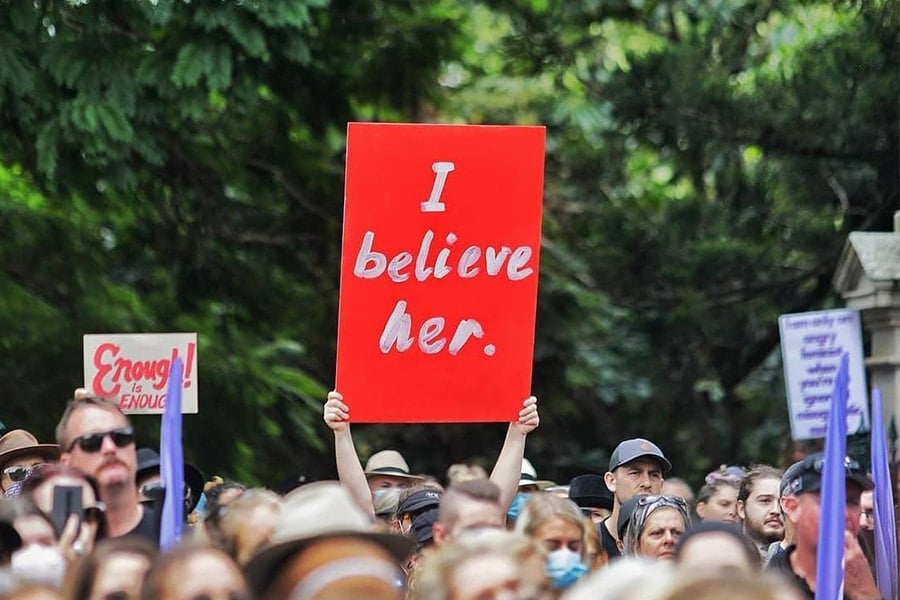
After two trials and two appeals, in 2017 the New South Wales High Court ruled that while Saxon Mullins had not consented to having sex outside a Kings Cross club in 2013 — she was sexually assaulted — her assailant Luke Lazarus had "no reasonable basis for thinking" that she hadn't, and so the court ultimately found him not guilty. If this case was brought before the courts today, the verdict may have turned out differently. What reason do we have to believe this? As of November 23, the much anticipated Affirmative Consent Bill passed in the Upper House of NSW Parliament — a win for survivors across the state.
What is the Affirmative Consent Bill?
For those not across the bill, it is now a legal requirement for defendants of sexual assault cases to prove to the courts that they actively sought and received affirmative consent — that is an enthusiastic yes — before engaging in sex with that person. This is heartening evidence that the state government is taking the necessary steps to enact law reform that reflects an evidence-based approach to matters of sexual violence; that is, the bill speaks to the common 'freeze' response, where survivors rather than fighting or fleeing, shut down during the assault.
As part of the new reforms, the Affirmative Consent Bill provides five new jury directions for judges to set out at trial that will address common myths that surround sexual assault — including behavioural responses — that will ensure the evidence of complainants is considered in context and approached fairly.
Another element of the reform is that judges, legal practitioners and police will be participate in education programs that will guide them on how to approach survivors of sexual assault during the judicial process.
Although, there are concerns that the bill is not completely water tight. In a letter sent to NSW Attorney General, Mark Speakman, the NSW Rape Crisis Centre praised the reform, but also highlighted that the definition of mental impairment is so broad that it could provide a loophole for accused persons. They also argued that "substantive protections" already exist in criminal law for those living with serious mental health impairments.
There are also questions around what evidence will be accepted as a worthy form of consent?
Are other states looking to legislate the bill?
As for other states across Australia, we know that Victoria has indicated it will introduce an Affirmative Consent Bill in the near future which will coincide with legislation that would denounce stealthing — the removal of a condom or other forms of protection during sex without consent of all parties — as a crime.
Other instances of legal reform around sexual violence
The Affirmative Consent Bill is just one of many successful campaigns for and from survivors when it comes to seeking justice within the legal system. In 2020, the #LetHerSpeak movement, led by activist and journalist Nina Funnel, successfully campaigned for gag law reform in Tasmania, Victoria and the Northern Territory. The movement gained momentum after Grace Tame became the first female survivor of sexual assault to obtain a court order that would allow her to self-identify in the media, thus drawing attention to the way gag laws silence survivors rather than protect them.
In July this year, News South Wales, Victoria, Queensland and the ACT also introduced new defamation law reforms, namely the much needed 'Public Interest' defence, which would in theory provide greater protection to survivors and journalists speaking out and reporting on high profile cases of sexual abuse, like in the case of Christian Porter where the threat of being sued for defamation elicits a 'chilling effect' on the stories being told.
For survivors, wom*n and allies across Australia, the Affirmative Consent Bill is an encouraging step forward after Australia's hampered #MeToo movement, the March 4 Justice protests, and the constant undermining of Australian women by politicians and public figures; be it via the failure that was the Women's Safety Summit or the many concessions made to politicians at the expense of the safety and wellbeing of women.
Change is coming.
Image: Instagram



